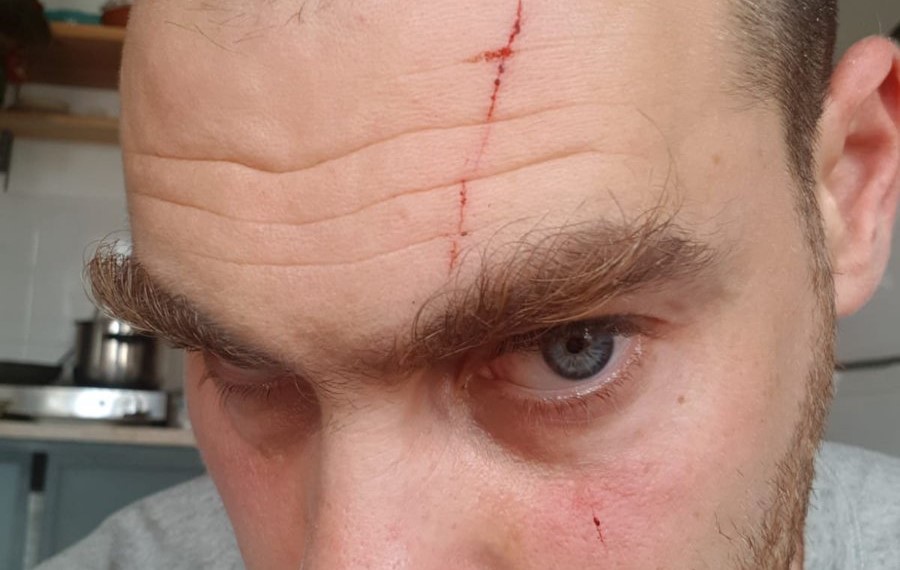Anti-occupation activist Jonathan Pollak was attacked in Tel Aviv on Sunday, July 7, and suffered cuts on his arms and face. Pollak is one of the founders of Anarchists against the Wall, an organization that is openly against the occupation of the Palestinian territories.
“I left my workplace for lunch and saw two people following me,” he told journalists, “I thought they were police, as there is a standing order to arrest me.” The men called him a “fucking leftist,” shoved him to the ground and began hitting him. At one point, one of them pulled a knife and began cutting him. “They got stressed at this point and ran away,” he said.

Anti-occupation Activist Jonathan Pollak after he was attacked by right-wing ruffians in Tel Aviv on Sunday, July 7 (Photo: Al-Ittihad)
Pollak has had numerous run-ins with the Israeli military and police throughout his years of protesting, and has been summoned to court hearings for demonstrations in the occupied West Bank.
Pollak refused to attend the court hearings about his protests, using the argument that he will not take part in “the absurd theater of occupation. I, as an Israeli, am taken to a court in Israel and my Palestinian friends are taken to Military court,” he said, “This says much about the lack of democracy in Israel and how there never was democracy in the territories occupied by Israel.”
Pollak also said he has no intention of going to the police to complain of the assault against him. “My experience with the police is that they inflict more harm on us then what I just went through,” he said. “The police are the last place in the world I’d go to for protection.”
Communist MK Ofer Cassif (Hadash) tweeted on Sunday that the assault against Pollak is the result of “vicious incitement by the far-right, which defines left-wing activists as traitors and those who are pro-peace as enemies.” “We will continue to work for peace,” Cassif wrote, “despite the threats.”


